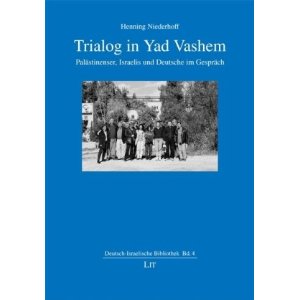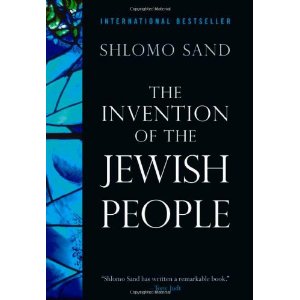TeacMem: Developing Competence–Orientated Teaching on Historical Memories
The First (Neuengamme) Seminar – Short Report
On 22nd of March, 2010, 24 members and addressees of the TeacMem Seminar met in the outskirts of Hamburg, at the Study Center of the Concentration Camp Memorial Neuengamme.
The group consisted of teachers, teacher-trainers, museum and memorial educators and academics working in the field of memory culture in Denmark, Norway and Germany.
The seminar started with a short introduction by the projects’ coordinator, Prof. Dr. Andreas Körber. Afterwards, the participants were divided into small groups, composed as to mix both nations and professions, which were given time to explore the memorial site (including the exhibitions) on their own. For documentation and enabling discussions, the groups were asked to take photographs of situations/objects/arrangements, which stirred communication and discussion among them, and afterwards to create a short “mini exhibition” using their own photos. This procedure served not only the seminar’s internal facilitations, but also as a piloting of a method to be elaborated within the project.
The remainder of this first (half) day was used for preparation of the mini exhibitions and their presentation in the plenary at the study center of the memorial as well as for informal exchanges. The participants were asked to document and reflect their personal experiences as well as their insights both from official discussions and from informal exchanges in a “learning diary” in order to both have the chance to have them documented using the documentation concept and to facilitate reflexive individual learning. This procedure also had the character of piloting and testing of a method to be included in the resulting materials developed by the project. It is to be re-used and refined at the next meeting in Copenhagen in autumn 2010.
The next two days, the seminar worked in groups on different aspects of German memorial culture. After a guided tour around the former concentration camp and today’s memorial site, especially the aspects of remembering perpetrators (in the exhibition on the camp-SS) and of the Scandinavian inmates (prisoners) of German Concentration Camps having been pooled in Neuengamme in early 1945 and released to their home countries with the help of the Swedish Red Cross (“White Buses”), as well as the ambivalent character of this project have been addressed.
The third day was dedicated to comparison. In different groups, participants were presented with and/or explored different aspects of German memorial culture as visible in Hamburg.
A first group (organized by Marco Kühnert) explored the remainders and reminders of Jewish life as well as its revival in the Hamburg Grindel-Quarter, together with the new memorial concepts of “Stolpersteine” (“stumbling stones”), an art project by Gunter Demnig, which has had significant influence on German memorial culture and the discussions on it within the last years, thus being occupied among other with the aspect of rather centralised (concentration camp memorials) vs. decentralised remembering and reminding at lots of places of everyday life.
A second group, organized by Kerstin Klingel, explored a contrasting strand of memorial culture that represented by concentration camp memorials, namely different forms of war memorials in Hamburg and different ways of critical handling of them (e.g. by erecting counter-memorials).
The third group, organized by Michael Grill, explored still another dimension, namely the rmembrance not of victims and perpetrators of NS crimes, but of resistance – thus preparing a bridge of comparison to places to be visited and discussed in Copenhagen and Oslo in later seminars of the project.
Again, presentations and discussions in the plenary closed the day and secured the exchange of thoughts.
The last two days were dedicated to theoretical inputs, e.g. by Dr. Hermann Kaienburg on the role of cultural diversity, and to the development of group-activities for the inter-seminar period.
The seminar closed with a plenary discussion using the method of “stimulated recall”, prompted by photos of the proceedings of the seminar. The transcript of the recorded session will pre used for researching the underlying theoretical assumptions and concepts used by the discussants, which will then in turn be used for developing teaching material.
The seminar closed on Saturday, March 27th 2010 around noon.
A.Körber
===
Schedule
Monday, March 22nd, 2010; 14.00h – Saturday, March 27th, 2010; 13.00h
|
|
|
Location(s) |
PreparationTechnical equipment |
| Mon 22 Mar 10 |
|
|
|
|
| 14.00 |
Opening Andreas Körber |
Neuengamme Study Centre and premises |
|
| 14.30 |
Exploration of Memorial Site in Small groups (culturally and professionally mixed). Task: Miniexhibitions |
DigiCams |
| 16.30 |
Coffee |
|
| 17.00 |
Group: Preparation of Presentations |
DigiCams |
| 17.30 |
Plenum: Presentation of Mini Exhibitions |
DigiCams/Audio:
Martin Reiter |
| 19.15 |
Public Bus to Town |
|
| 20.30 |
Dinner in Town |
Not financed by the project |
| Tue 23 Mar 10 |
09.00 |
Guided Tour: From KZ to memorial: Ulrike Jensen |
Neuengamme Study Centre and premises |
DigiCams |
| 11.00 |
Coffee |
|
| 11.30 |
Module I: White Buses (Part I): Claudia Lenz, Ulrike Jensen, Oliver von Wrochem |
Digicams |
| 13.30 |
Lunch |
|
| 14.30 |
Module I: White Buses (Part II) Claudia Lenz, Ulrike Jensen, Oliver von Wrochem |
DigiCams |
| 16.30 |
Coffee |
|
| 17.00 |
White Buses: Reflections |
DigiCams /Audio: Martin Reiter |
| 19.15 |
Departure of Bus (Public) |
|
|
Free Evening |
|
| Wed 24 Mar 10 |
09.00 |
Module 2: Perpetrators (Part I) Ulrike Jensen, Claudia Lenz, Harald Syse [Oliver von Wrochem] |
Neuengamme Study Centre and premises |
DigiCams |
| 11.00 |
Coffee |
|
| 11.30 |
Module 2: Perpetrators (Part II) Ulrike Jensen, Claudia Lenz, Harald Syse [Oliver von Wrochem] |
DigiCams |
| 13.30 |
Lunch |
|
| 14.30 |
Reflection I: Perpetrators: Ulrike Jensen, Claudia Lenz |
DigiCams /Audio: Martin Reiter |
| 16.00 |
Coffee (and Cake) |
|
| 16.30 |
Reflection II: General: Lisa Rosa-Robra |
DigiCams/ Audio: Martin Reiter |
| 18.30 |
Free Evening |
In town |
|
| Thu 25 Mar 10 |
09.00 |
Introduction into Day’s Procedure: Lisa Rosa-Robra |
In the Landesinstitut, Felix Dahn-Straße 3 |
|
| 10.00 |
Explorations of Other Memorial Subjects and Sites in Town (in small mixed groups);Tours are not to be guided, but prepared and accompanied by experts)
– Grindel / Stolpersteine: (expert: Marco Kühnert)
– Soldatengedenken (expert: Kerstin Klingel)
– Resistance: (expert: Michael Grill) |
In Town |
DigiCams |
| 16.00 |
Group Work: Preparation of Presentations: Foto-Exibition |
Hamburg University, Faculty EPB; Von-Melle-Park 8; 20146 Hamburg;Rooms 05, 205, 206, 207 |
3 small rooms 1 big roomBeamers, Audio |
| 17.00 |
Presentations/Reports and reflections |
| 19.30 |
Lunch at Arkadasch Restaurant |
Restaurant |
Dinner paid by the project |
| Fri 26 Mar 10 |
09.00 |
Collection and Systematization of Aspects of Experiences: Andreas Körber |
Neuengamme, Study Centre (and premises) |
|
| 11.00 |
Coffee |
|
| 11.30 |
Presentation: Hermann Kaienburg: Social and cultural diversity of Students as Factors in Didactical Reflections on the subject |
|
| 12.15 |
Organisation: Clarification of tasks and forming of groups (for the rest of the seminar and the inter-seminar online work): Andreas Körber |
DigiCams
preparation NLD:
Martin Reiter |
| 13.00 |
Lunch |
|
| 14.00 |
Preparation of Subjects/tasks for inter-seminar work: Didactical Aspects of the subject to be worked on |
DigiCams
preparation NLD:
Martin Reiter |
| 16.00 |
Coffee |
|
| 16.30 |
Presentations of Ideas, Tasks and PlansDiscussion: Andreas Körber/Claudia Lenz |
DigiCams/Audio: Martin Reiter |
| 19.00 |
Lunch (in Town) |
Not paid by the project |
| Sat 27 Mar 10 |
09.00 |
Organisation |
Landesinstitut, Felix-Dahn-Straße 3 |
Group Rooms |
| 09.30 |
Groups: Reflections on experiences within the Seminar (RTA/NLD): Claudia Lenz |
DigiCams/Audio |
| 10.30 |
Coffee |
|
| 11.00 |
Final Plenary Discussion Claudia Lenz |
DigiCams/Audio |
| 12.30 |
Lunch |
|
|
|
END OF SEMINAR; Departure |
|
|
|
|
|
|
|




Dancing “I will survive” in Auschwitz and other KZ-memorials
The German Newspaper “die tageszeitung” today reports on a youtube-video by an Australian artist showing her grandfather, who survived Auschwitz and Groß-Rosen, dancing to the disco-hit “I will survice” at KZ-memorial sites, and about a discussion about the adecuateness of such a behaviour:
http://www.taz.de/1/netz/netzkultur/artikel/1/disco-dancing-in-auschwitz/